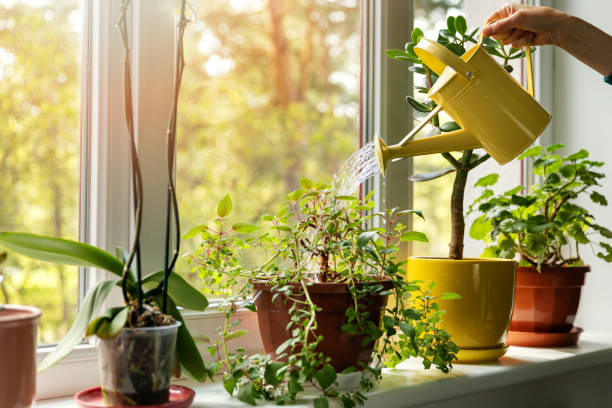
FAQ About Plant Care
How do I control the pH of my plant's soil?
Controlling the pH of your plant's soil is important because different plants have different pH preferences, and the pH level affects nutrient availability. Here are some methods to help you control the pH of your plant's soil:
Test the soil pH: Start by testing the pH of your soil using a soil testing kit or by sending a soil sample to a laboratory for analysis. This will give you a baseline understanding of your soil's pH level.
Adjusting acidic soil (pH below 7):
- Adding lime: If your soil is too acidic, you can raise the pH by adding agricultural lime. Follow the recommended application rates based on the soil test results. Lime increases soil pH by releasing calcium and reducing acidity.
- Organic matter: Incorporate organic matter such as compost, well-rotted manure, or leaf mold into the soil. Organic matter can help buffer pH levels and gradually raise the pH over time.
Adjusting alkaline soil (pH above 7):
- Adding sulfur: If your soil is too alkaline, you can lower the pH by adding elemental sulfur. Follow the recommended application rates based on the soil test results. Sulfur oxidizes and releases sulfuric acid, reducing soil pH.
- Acidifying agents: Use acidifying agents like vinegar or citric acid sparingly and with caution, as they can potentially harm plants if used in excess. It's best to rely on sulfur or organic matter for long-term pH adjustment.
Use pH-adjusting fertilizers: Some fertilizers are specifically formulated to adjust soil pH. For example, ammonium-based fertilizers tend to lower pH, while lime-based fertilizers can raise pH. Use these fertilizers according to the instructions and monitor the pH levels regularly.
Mulching: Applying organic mulch, such as pine needles, peat moss, or pine bark, can help acidify the soil over time. As the mulch breaks down, it releases organic acids that can gradually lower the pH.
Watering considerations: The pH of your water can affect soil pH over time. If your water is alkaline, it may gradually raise the pH of your soil. Consider collecting rainwater, which tends to be more neutral, or use water treatments specifically designed to adjust the pH of tap water.
Monitoring and retesting: Regularly monitor the pH levels of your soil to ensure they remain within the desired range for your specific plants. Retest the soil every year or two to track any changes and adjust as necessary.
